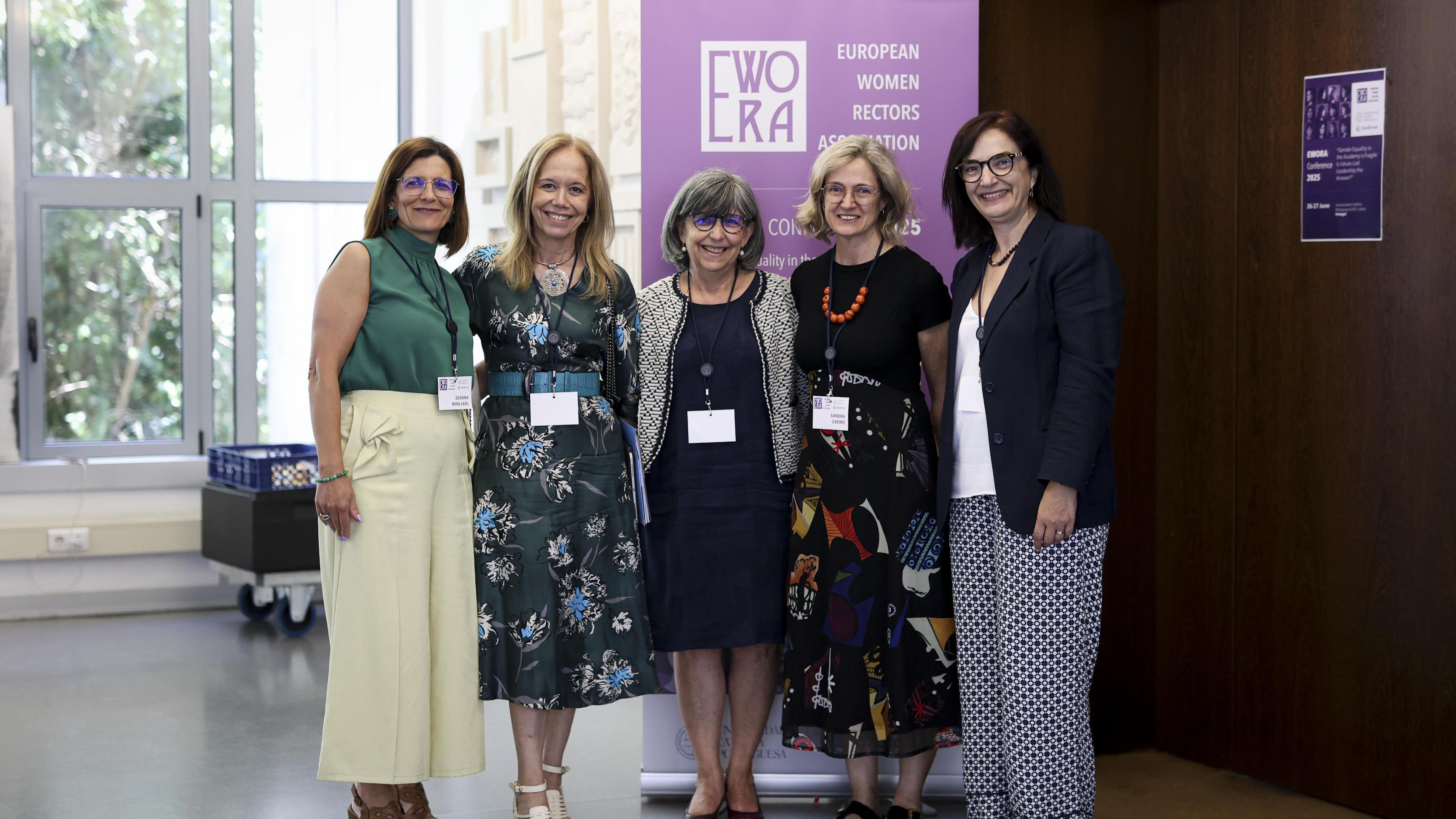
“Gender Equality in Academia is Fragile: Is Values-Driven Leadership the Answer?” is the motto of the European Women Rectors Association (EWORA) conference taking place on June 26 and 27 at the headquarters of the Universidade Católica Portuguesa in Lisbon.
Among the topics to be addressed in the panels that will take place over the two days are values-based leadership strategies, policies to promote gender equality, the importance of promoting inclusive environments and the use of Artificial Intelligence in universities and research.
“The reason we are here today is more relevant than ever,” stressed the President of the Universidade Católica Portuguesa, Isabel Capeloa Gil, at the opening session of the conference, explaining that “beyond the borders of Europe, diversity and equity are being demonized”.
Affirming that Católica - where the issue of female leadership is strategic - aims to be “a safe space for a global dialog”, Isabel Capeloa Gil highlighted theWomen+ initiative, launched at the university in 2024, which aims to promote the progression of women in the academic environment and inspire female leadership in young graduates, through mentoring and job shadowing.
“European universities continue to reflect a paradox: while women account for almost 50% of graduates and more than 41% of academic staff in Europe, they represent only 24% of rectors or presidency positions,” she recalled.
For the President, “gender equality in academic leadership is not just a question of justice, it is a question of institutional excellence, democratic legitimacy and the kind of future we want to shape for our students and societies”.
The president of EWORA and former Vice-Chancellor of Malmö University (Sweden), Kerstin Tham, also warned that “we urgently need role models when it comes to practicing good leadership”.
"Today, it is more important than ever to be independent and free from political influence. Topics such as gender equality, diversity and inclusion are exposed to threats in many countries," which is why the work of organizations such as EWORA is increasingly necessary and must remain independent, she said. Warning that the “growing culture of silence” must be combated, she stressed the role of universities in this goal and the importance of creating strong international networks among women rectors and academic leaders.
The president of NordForsk, the organization of the Nordic Council of Ministers that funds and facilitates Nordic cooperation in research, stressed that “promoting gender equality is not just a women's issue”. “It's a shared responsibility,” added Arne Flåøyen, arguing that men should also get involved.
The opening session was also attended by the Secretary of State for Higher Education, Cláudia Sarrico, who highlighted EWORA's “fundamental role in promoting female leadership in universities, contributing to more diversity and a more representative academic landscape”.
Using 2022 data from the European University Association, she pointed out that only 18% of rectors and 20% of vice-rectors are women, arguing that as you go up the academic hierarchy, there is less of a female presence, for example in leadership positions and as full professors. “Women receive less funding for research and have less academic visibility, publishing less,” she lamented.
“In Portugal, 28% of public higher education institutions are led by women,” said the Secretary of State.
Against this backdrop, Claúdia Sarrico assured: “we take seriously the commitment to promote public policies that guarantee equity, recognize merit and provide an academic environment in which everyone can create.”
“Equality is not just a question of justice, it's also a question of quality,” she concluded.
After the opening session, the EWORA conference unfolds in different panels and debates, with the participation of leaders from various higher education institutions, as well as including the association's general assembly and the awarding of the Portugal EWORA honorary prize to Manuela Veloso.


